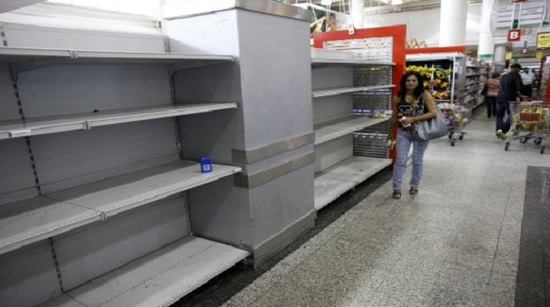In 2001, upon graduating from high school, I decided to take time off and move to Venezuela. I traveled through most parts of the country, worked as a waiter and later as a security guard at a public theater in Mérida, an Andean town near the Colombian border. My experience left me with a life-long admiration for Venezuela and its people, and a profound certainty of the country’s vast potential.
No hay carro
Yet over the years, my conversations with Venezuelans have increasingly focused on economic difficulties, absurd levels of crime and a degree of political division unimaginable in most other countries in the world – despite significant (and rarely cited) progress in reducing poverty and improving access to health care. For outsiders, remaining neutral has become increasingly difficult in a society where formerly good friends stop talking to each other because of their political orientation, and where having signed the wrong petition can irrevocably destroy young people’s professional ambitions. More recently, growing inflation and the government’s attempts to ban price rises has led to product shortages that severely affect Venezuelans’ daily routine. Basic goods such as toilet paper, milk and oil are difficult to find.
Unlike in Argentina, however, the risk of default in Venezuela is very small. With an annual oil revenue of over US$ 90 billion, US$ 20 billion as central bank’s reserves and interest payments on the public foreign debt of less than US$ 5 billion, Venezuela cannot be compared to Greece.
While outright default is unlikely, there seems to be little hope for Venezuela in the short term. There is a growing sense even among Maduro’s supporters that he is incapable of effectively addressing the roots of the problem. Maduro’s “economic war” to tame inflation includes many arrests for allegedly selling goods at speculative prices, and signals that the governments must now revert to political stunts to divert attention from its failings. While speculation plays some role in Venezuela’s troubles, they are not the origin of the country’s sorry plight.
The situation may affect Venezuela’s future political stability, too. In 1989, President Pérez’ tough austerity plan led to riots that killed many, and there is a growing risk today that dissent within President Maduro’s own party may lead to his ouster, creating a power vacuum that could, in the worst scenario, provide an excuse for the army to intervene and impose order. While those critical of Hugo Chavez often overlook the tangible social progress during his time in office, chavistas overlook that he has weakened the country’s economy and its democratic institutions: Recently, the National Assembly stripped an opposition lawmaker of her immunity from prosecution in a case of alleged corruption, allowing the legislature to grant the president power to enact laws by decree. The political divisions make a constructive policy debate almost impossible.
Venezuela may thus cause, once again, headaches for foreign policy makers in the region, particularly in Brazil, which wields more influence in Venezuela than most. An economic and political crisis in Venezuela reflects badly on the entire region and affect Brazil’s economic interests, and it is in Brasília’s national interest to help get its neighbor back on track. Should a political rupture take place in Venezuela, it may be seen as a litmus test of Brazil’s regional leadership capacity, just like in 2002, when Brazil played an important role in the aftermath of a coup d’état in Caracas. While the circumstances of Venezuela’s inclusion into Mercosul have been objectionable (it occurred following Paraguay’s questionable suspension from the grouping), it may turn out to be a useful tool for Brazil in its attempts to keep Venezuela close and attempt to influence it positively. One thing seems certain: At this crucial time, engaging Caracas, rather than excluding it, is bound to increase Brazil’s leverage.
Read also:
Is Brazil the New Regional Champion of Democracy? (Americas Quarterly)
Brazil and the democratization of foreign policy
Photo credit: REUTERS/Jorge Silva









